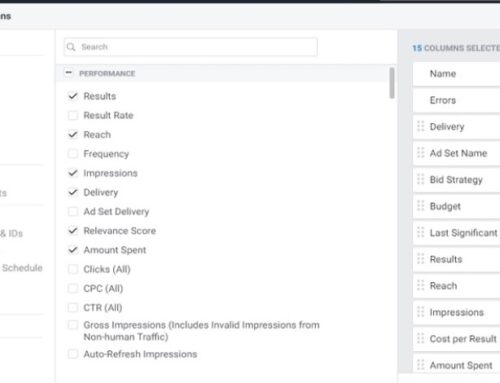Take this as an accumulation of some personal reflections that I scribbled in a notebook. Hence, there is no hierarchy or order in the presentation of the points below. Nor does it resemble any of the usual posts that you are used to seeing. Rather I think it will be a pleasant read for most readers as it is divided into short and useful paragraphs.
• • •
An advertising man that claims that he cannot guarantee you sales, is a man we cannot work with. For he may be correct, he does not control the final decision in the customer when he interacts with your business. But for him to claim that, it is like buying a house from a real estate agent that claims that the roof might collapse on you one night.
–
For the only purpose of advertising is to produce a profit for the business. It is not to write brilliant copy, or dazzle your clients with academic jargon. The goal of advertising is to communicate effectively with the common man, while gaining his business.
–
He is not writing to appeal to the top 1% of the population but the 99%. The everyday folk like you and me. The ordinary people which will bring sales to you, month after month.
–
He is not in advertising to amuse, entertain or show-off to the public. The public shuns this kind of behaviour, and the advertiser will be assured to have no sales until he corrects his habits.
–
He is writing to sell, and he wants to sell at a profit.
–
When advertising, we are speaking to common people. And with common people we use common language. If he wishes to show off his fine language, this is the wrong place to do it. Any trace of literariness in an advertising is fatal to its success. All ads must use simple language so it is immediately comprehensible to the reader who views it.
–
Pretentious jargon must be removed from ads. I notice that a lot of professionals like to use jargon to make themselves look “hard-to-understand”.
Words like “EXHILARATING”,”INFEBBLE”,”DEMASSIFICATION”,”INCORGUOUS”. Are they buying their own products?
I recently receive a message on LinkedIn and here is the greeting :”Hi Cyrus, thanks for the connection. A group of partners and I are in (explains his business)…. Aiming to bridge the gap between the banked and unbanked population through an ecosystem…”
I am sure that he can write in a simpler way, that any one of us can clearly understand what the intent is behind the message.
–
If the reader has to pause and ponder over a sentence or a phrase used in your copy, the ad has failed its job.
–
A quick search through the LinkedIn network you can find men claiming to work in the “Financial Services” business when they are merely selling insurance. No customer ever looks for “financial services”. The average user may be looking for “car financing”,”home mortgage”,”credit loans” or “insurance” but never financial services.
Once again the improper use of words. Perhaps he feels safer to hide behind a broad description that says nothing.
–
The advertising man should never tolerate waste circulation of his ads, for advertising is an expense to the business involved, and only when the ads pay for itself, then it becomes an investment. The more we cut down on wastage, the healthier the account will be, and the more profits it can make.
–
We may earn less temporarily when we help to reduce waste spending for the client, but it is on this basis that the client can gain our trust and continue to advertise month after month. Securing our relationship and business for the long term.
–
To the reader we must know that it is of human nature to procrastinate and delay. And both of these factors are fatal to any sale. When a customer says “I’ll look into it.” or “I’ll do it next week.” It is likely that he won’t. The majority of the readers of your ads will be met with inertia. It is up to the ad copy to overcome such inertia by giving him a definite and attractive motive to take action immediately.
If we can reduce such friction and push our reader into taking action, we can dramatically increase the ad’s effectiveness and results. Therefore, we should ask ourselves 2 questions:
1) Can we simplify the process of taking action?
2) Can we supply the reader with a motive or burning desire to take action quickly?
–
All human actions (sales) are based upon basic motives, not logic. When writing, always apply to emotion before logic. When both are in conflict, emotion will always win.
–
A good ad copy may help sell a bad product, but it will also accelerate its downfall in the process. Because advertising in nature is expansive. Meaning the ability to disperse the message quickly. The ad can help push initial sales of the bad product but many people will also be quick to find out its awfulness.
In reverse, even a bad ad copy cannot stop the explosion of an excellent product. It is human nature to find out how much one is getting for what he pays for, when in the product he finds that he gets in return 5X or 10X value of what he paid, the product will sell even with poor advertising.
–
In short, good advertising can help unsell a bad product fast. But bad advertising cannot unsell an excellent product. The readers and buyers are our verdict. Your sales is the measure of effectiveness.
–
Never write to disparage competition, no matter how stiff it may be. A negative copy is naturally repulsive to viewers. The viewers can sense it, and scorn it. Moreover, it will only attract customers who are also negative in nature. A natural, confident business believes in its superior value to its consumers, find no need to tear down anybody else.
–
In reverse, when a business writes in praise of its competition, consumers naturally gravitate towards it. It strikes in the human psychology when a business uplift their competition in advertising must only be doing so because they are really confident of the superiority of their own products, that because of this they must be the best. And this assumption impels viewers to buy it. Note that it usually only works when you are the supposedly market leader.
–
The previous point happens very rarely in business. I believe that it may be the highest level of brand positioning, as it plays on the customer’s mind like nothing else.
• • •





